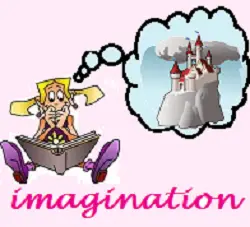| Back to Back Issues Page |
 |
|
English Detective #78 Imagining Future Cities: Feb 14 2017 February 14, 2017 |
What might the cities of the future be like? This issue links to three articles with different sets of possibilities, followed by a discussion of the interesting uses for English words related to vision and imagination.

A vision of New York in 2050 is the least abstract of the articles. It starts with recent changes that make New York City a little “greener” (and more pleasant for the people who live there), and then proposes other changes to be made over time. The second article is a summary of a much longer (linked) report, again emphasizing solutions to major urban problems like the need for less carbon emissions, more food grown on less land, better traffic control, and eventually finding more space for cities on or under the sea. Ziptopia is the most futuristic—a set of nine future city designs or concepts with very imaginative illustrations. The final project concept they show has actually already been built. The Flexibility of English Words
The words I want to look at today are not difficult or uncommon, but they illustrate the ‘flexibility’ of English words in two ways. They can be used literally OR metaphorically, and they transition easily (and sometimes without even changing form) from one part of speech to another. ‘Vision’ refers to seeing, but it can mean eyesight, insight (depth of understanding, either about the present or looking into the unknown future), or even a revelation from God. To ‘envision’ (a verb) is to imagine or picture the future. (Note that ‘picture’ is used as a verb here, as well.) Visionary can be an adjective, or a noun referring to someone with a vision beyond what others see or can imagine. An image is a likeness, copy, picture (especially in a mirror or camera) or even a statue. To imagine is to picture something mentally (“in the mind’s eye”.) Imagination is that mental ability to picture something that’s not present. Imaginary is an adjective meaning unreal—only existing in the imagination. A note if you get gmail: Have you missed any issues of English Detective? if you find English Detective in your Promotions box, you can move it to your Primary box (if you want) by clicking on it and dragging it there, then clicking Yes when asked if you want to always get it in the Primary box. If you are not already getting English Detective, you can subscribe by completing the form here. (It's free!) Also, you can reach me by mail at 1752 Driftwood Drive, El Centro, CA 92243, USA. |
| Back to Back Issues Page |